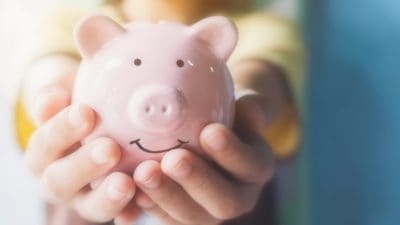He’s the Oracle of Omaha, and one of the greatest investors of all time (if not the greatest). His company, Berkshire Hathaway, has one of the highest market caps in the world ($650 billion) and its stock is the most expensive (currently $430,755). His investing advice has helped millions of investors stay out of trouble, and his pithy Zen statements are almost as quoted as the Bible.
But Warren Buffett isn’t a god. He’s not a soothsayer, not someone who can read the future from a tea leaf or tarot card. He’s human, just like you and me, and he’s made his fair share of mistakes.
When it comes to his biggest mistakes, here are just three that we can learn from.
1. Buying Amazon too late
Buffett has repeatedly said that one of his biggest regrets was not buying Amazon in the beginning.
Just for perspective, Amazon sold for US$18 at its initial public offering in 1997. As of writing, Amazon has climbed to US$3,480 per share. If you had bought 1,000 shares of Amazon in 1997, you would have accumulated around US$3.5 million by now.
Regarding his notorious Amazon decision (or lack thereof), he didn’t opt out from lack of confidence or skepticism over Amazon’s business model. He simply didn’t understand it. Buffett will never invest in something he doesn’t understand, a principle that’s surely saved him as much money as he’s lost in Amazon.
We can learn something here. Investing in businesses you understand is good investing advice. It’s great advice, actually. But if you limit yourself to businesses within your current scope of knowledge, you could miss a deal: you could miss an Amazon. Invest in businesses you understand, sure, but always seek to expand your understanding. That way, you can expand your ability to pick great stocks, no matter what industry they’re in.
2. Not buying Google
Another great stock that Buffett opted out of was Google. A few years back, Buffett confessed to investors that he regretted not buying Google when shares were US$10 a pop.
Had he bought shares when they were only US$10, he would have gained a tremendous amount of money, as he well knows. Right now, Alphabet stock trades for a whopping US$2,964 per share, which is about as high a return as most investors ever see.
As with Amazon, Buffett didn’t buy Amazon because he didn’t understand the business. What we can learn is this: if you think a stock is good, seek to understand it before you pass it up. You might just make a decision you won’t regret.
3. Buying Berkshire Hathaway
Yep — in addition to his regrets over Amazon and Google, Buffett regrets buying his own company, Berkshire Hathaway. And I’m not talking about a little regret. In a 2010 interview with CNBC, Buffett claimed that Berkshire Hathaway was the “dumbest” stock he ever bought.
The reason is simple. Back in the 60s, when Buffett bought its stock, Berkshire Hathaway was a textile company — a failing textile company. Even as textile mills were closing, Buffett thought the price of the company was a good deal.
By 1964, it was clear Berkshire Hathaway’s financial situation wasn’t going to improve, and then-owner Seabury Stanton tried to rebuy Buffett’s stock. He quoted Buffett one price ($11.5 per share), which Buffett agreed to, then sent him a tender for a lower price ($11.375). Buffett was so furious he bought more stock, eventually owning Berkshire Hathaway, firing Stanton, and leaving Buffett with a failing textile company.
So, yeah, the lesson here is don’t buy out your friends’ failing companies if they make you angry or upset. Or, more generally, don’t let emotions control your investing decisions. Keep a cool head and back away from a stock trade when emotions are high.








